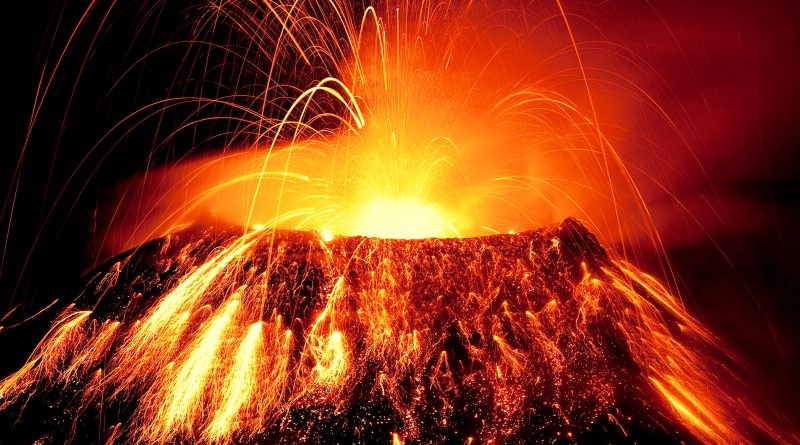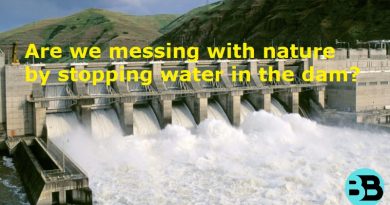How do volcanic eruptions occur and what effects?
Volcanic eruptions occur when magma, which is molten rock, rises to the surface of the Earth. Magma is formed when the temperature and pressure within the Earth’s crust cause rocks to melt. When magma rises to the surface, it can erupt violently, spewing ash, gas, and lava.
There are different types of volcanic eruptions, including explosive and effusive eruptions. Explosive eruptions occur when gas bubbles in the magma burst, creating pressure that propels ash, rocks, and lava into the air. Effusive eruptions, on the other hand, involve the slow release of lava that flows out of the volcano.
The effects of volcanic eruptions can be widespread and devastating. Here are some effects:
Ashfall:
Volcanic ash can blanket the surrounding area, causing damage to infrastructure, contaminating water supplies, and posing a health hazard to humans and animals.
Lava flows:
When lava flows from a volcano, it can destroy buildings, roads, and other infrastructure in its path.
Pyroclastic flows:
These are fast-moving currents of hot gas and volcanic matter that can be deadly, traveling at speeds of up to 450 miles per hour.
Lahars:
A lahar is a type of mudflow or debris flow that can be triggered by volcanic activity. Lahars can cause significant damage to structures and infrastructure.
Volcanic gases:
Volcanic eruptions can release gases such as sulfur dioxide and carbon dioxide, which can have a negative impact on air quality and pose a health hazard to humans and animals.
Climate impact:
Large volcanic eruptions can inject significant amounts of ash and gases into the atmosphere, which can lead to a cooling effect on the Earth’s climate.
Creation of new land:
Volcanic eruptions can also create new land, such as islands, as lava solidifies and builds up over time.
Disruption of air travel:
Volcanic ash can pose a significant threat to air travel, as it can damage aircraft engines and reduce visibility, leading to flight cancellations and delays.
Agricultural impacts:
Ashfall from volcanic eruptions can damage crops, and the release of volcanic gases can also have a negative impact on agriculture by damaging soil and vegetation.
Human displacement:
Volcanic eruptions can force people to evacuate their homes and communities, leading to temporary or permanent displacement.
Economic impacts:
The destruction caused by volcanic eruptions can have significant economic impacts, including loss of property and infrastructure, disruption of tourism, and costs associated with cleanup and rebuilding.
Geological research:
Volcanic eruptions can provide valuable insights into the Earth’s geological history and processes, and scientists often study them to better understand how the planet works.
Cultural impacts:
Volcanic eruptions can have a significant impact on the culture and traditions of communities living near active volcanoes. In some cases, eruptions may be seen as divine or supernatural events and may be incorporated into local folklore and belief systems.
Wildlife impacts:
Volcanic eruptions can have a significant impact on wildlife and their habitats, especially those that live in close proximity to volcanoes. This can include the destruction of habitat, loss of food sources, and displacement of wildlife populations.
Geological hazards:
Volcanic eruptions can trigger other geological hazards, such as landslides, earthquakes, and tsunamis, which can have devastating impacts on people and communities.
Geological resources:
Volcanic eruptions can also create valuable geological resources, such as geothermal energy and minerals. Geothermal energy is produced by harnessing the heat generated by the Earth’s interior, while minerals such as sulfur, gold, and copper can be found in volcanic deposits.
Scientific discoveries:
Volcanic eruptions can provide a unique opportunity for scientists to study the Earth’s interior and better understand the processes that shape our planet. For example, volcanic eruptions can help scientists learn more about plate tectonics, magma composition, and the formation of minerals.
Overall, volcanic eruptions can have a wide range of impacts, both positive and negative, and it is important to understand and prepare for these impacts in order to protect people, wildlife, and the environment.
Overall, volcanic eruptions can have a wide range of effects, from the creation of new land to devastating destruction and loss of life. It is important for scientists and emergency responders to monitor volcanic activity and prepare for potential eruptions to minimize the impacts on people and communities.




